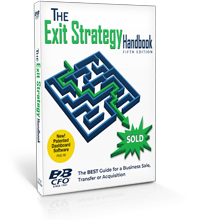
by Ania Kubicki | May 2, 2011 | Archives
More than 300 Gather in San Antonio, Texas to Recognize Outstanding Partners and Celebrate Company’s Success and Growth Phoenix, Ariz., May 2, 2011 – B2B CFO, the nation’s largest CFO services firm, recently concluded its sixth annual National Partners’ Conference in San Antonio, Texas. Held at the Embassy Suites on the historic Riverwalk, the conference was attended by more than 300 participants including partners, service providers, sponsors, speakers and guests. Held on April 29th and 30th, the conference was used as a platform to unveil B2B CFO’s new network portal and marketing strategies, recognize outstanding partners and provide a preview of new programs and training opportunities for 2011. The busy agenda featured more than 15 educational sessions highlighting best practices, industry statistics and product/service information from title sponsors. SAP Business byDesign™ and Lockton® & Principal Financial Group® were the Title Sponsors for this year’s conference. Gold sponsors included: SES Advisors, Inc., GrowthForce, and AICPA/CPA2Biz. Silver sponsors were: Cost Segregation Services, Inc., Charter Capital, Chief Outsiders, Entrepreneur Growth Capital, LLC, Reference Services, Inc. State Tax Advisors, Ivis.com, eXemplify, Inc.; Transwestern, Intuit and Oasis Outsourcing. “It was my pleasure to welcome all of this year’s sponsors to our conference,” said Jerry L. Mills, founder and CEO of B2B CFO. “We expect that as a result of this unique cross-industry collaboration we all will be better ambassadors for each other’s products and services and further our understanding and knowledge of how to best serve our marketplace.” The conference also included guest appearances from speakers and VIPs. Dave Sherman a renowned authority on mastering the fine art of networking...

by Ania Kubicki | May 17, 2010 | Archives
SMALL TALK MAY 17, 2010 Colleen DeBaise answers an entrepreneur’s question about when to call it quits Q: I’ve owned a small clothing boutique for three years. I weathered the economy, but now a construction project that will last three months has blocked foot traffic to my business. This is killing my cash flow so much that I had to delay paying my rent and my sales tax. When do I call it a day? —Susan, Burlingame, Calif. A: Fighting for survival is never easy, but keep in mind: If you don’t pay sales tax, the state could shut you down. When that happens, “you lose control—and that’s even more frustrating,” says Jerry L. Mills, founder of B2B CFO Partners LLC, a Phoenix firm that provides part-time chief-financial-officer services to small businesses. So, direct any reserve funds toward the payment of taxes as a first step in getting out of an already bad situation. After that, place a call to your insurance agent, and see if your business owner’s policy includes business- interruption insurance, which generally kicks in when natural or man-made hazards threaten your company. And while it’s best to avoid legal action, you might consider contacting an attorney to see if you have any recourse against the party—be it the city or a next-door neighbor—who’s jackhammering. Given the situation, you might also be able to negotiate a lower rent from your landlord, especially while construction continues. As far as deciding whether to close up shop, you should perform a simple cost-benefit analysis, looking at whether the positives outweigh the negatives if you remain open for six more...

by Ania Kubicki | Apr 20, 2010 | Archives
5 tips for calculating the cost versus the benefit of contracting key business functions BY Amy Reinink | April 20, 2010| Michele Hanson-O’Reggio calls it the “lone ranger” mind-set: the tendency of small-business owners to assume they can and should handle all business functions in-house rather than pay to outsource those functions. But Hanson-O’Reggio, founder of the small-business outsourcing and consulting firm Biz Success Partner, is one of many outsourcing and productivity experts to say that outsourcing, once seen as the sole purview of large corporations moving offices offshore, can save even the smallest businesses time and money. In fact, Hanson-O’Reggio recommends entrepreneurs outsource non-essential functions almost immediately upon launching a business to let them focus on the functions they specialize in. “The expected return is greater than the investment,” she says. She and other outsourcing experts offer the following tips for determining the expected return for your business. Consider the overhead and non-productive hours. The first layer of cost savings in outsourcing comes from payroll taxes, insurance and benefits paid to full-time employees. Mark Loschiavo, executive director of Drexel University’s Baiada Center for Entrepreneurship, says entrepreneurs should expect to pay roughly 30 percent of an employee’s salary in addition to the salary itself for these overhead costs.Lunch breaks, doctor appointments and other gaps in working hours bring the actual cost of a full-time employee to nearly double his or her base salary, says Hanson-O’Reggio. Hanson-O’Reggio also says it’s important to consider the financial gains associated with spending time netting new clients rather than doing the bookkeeping or replying to e-mails. Know your worth and use that knowledge to...

by Ania Kubicki | Jan 1, 2010 | Archives
Protecting intellectual property rights can safeguard your company from copycats. by ELAINE POFELDT – January 2010 Aspirin. Cellophane. Thermos. These were once trademarked names. But because the owners of the trademarks were not careful to control their proper use, they became part of the public domain. Competing companies were then able to use them in marketing materials, reaping the rewards of the work the original owners put into creating them. The lesson? When you have an idea— whether it’s a great brand name or a hot new product—the first thing you should do is consider protecting it. Before you start, you should understand the ways you can safeguard your idea and realize that it will cost money, time and effort. “Protecting intellectual property is not a one-time event,” says Alexander Poltorak, founder and CEO of General Patent Corp., a management firm in Suffern, NY, and author of Essentials of Licensing Intellectual Property. “It’s part of an overall business strategy.” There’s no one-size-fits-all rule as to which types of businesses need to be aggressive about IP protection, but experts recommend considering your IP value before making a decision. If, say, you’ve invested millions of dollars and several years of work in developing a new technology, you’ll want to be very zealous. Your first step should be figuring out what protection you need. There are four large groups of IP rights: trademarks, patents, trade secrets and copyrights. According to Paul Craane, a partner with the intellectual property law firm Marshall, Gerstein & Borun in Chicago, “Sometimes, people confuse what each of these rights covers. You’ll hear people say ‘I’ll trademark my...

by Ania Kubicki | Sep 22, 2009 | Archives
Firms Outsource a Top Job as Cheaper Than Hiring Their Own Executive By RAYMUND FLANDEZ This past year, Al Lovata, chief executive of Be Our Guest Inc., cut expenses for his party-equipment rental business by laying off staff and reducing workers’ salaries. He credits an “outsourced” chief financial officer with helping him prepare for the worst of the economic downturn. The Boston-based company had sales growth in the double digits for the past few years, when revenue fell flat last fall. Now, thanks to the part-time CFO’s guidance, the company is stable with revenue down 20% to 30%, but profitability higher than in the previous months, he says. If we hadn’t had this service, “we would still be struggling,” Mr. Lovata says. Brian Weitzel Mike Loria of Re.Source Partners Asset Management, in Detroit, consults his CFO, Sheri Pawlik of B2B CFO. Some small-business owners in need of accounting help to balance their books and guide them out of a financial black hole are renting CFOs rather than hiring them. The strategy comes at a time when the deep recession has forced small companies to look for money-saving alternatives that can yield good returns yet avoid substantial overhead costs. “They’re looking for ways to streamline and be efficient as they can,” says Glenn Dunlap, a co-founder of Milestone Advisors LLC, a small-business consulting firm in Indianapolis that provides CFO services. The average annual salary for a full-time CFO in a small- to medium-size businesses ranges from $94,250 to $175,750, according to a 2009 Salary Guide by Robert Half International Inc., a Menlo Park, Calif., staffing services firm that serves the...








